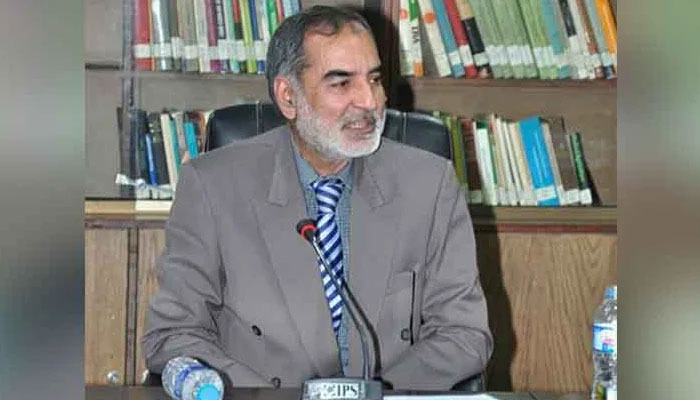Electricity underutilisation, circular debt demand urgent sectoral reforms
Islamabad:Privatisation can be a viable solution to the problem of electricity underutilisation as long as specific conditions are fulfilled, said experts during a discussion on Tuesday.
According to them, the process should follow a phased, step-by-step approach. For other issues in the power sector, such as uneven cost recovery and rising circular debt, urgent reforms are needed in governance, service quality, and demand-side management to restore consumer trust and enhance grid efficiency.
The event, titled “Addressing Electricity Underutilisation and Affordability: A Demand Side Approach to DISCOs Reforms,” was held at the Institute of Policy Studies (IPS) here, with former water and power secretary Mirza Hamid Hassan in the chair.
IPS chairman Khalid Rahman pointed to the extra generation planned for Special Economic Zones under CPEC, which, he said, largely failed to materialise, contributing to the current crisis in the power sector, particularly in the form of capacity payments to IPPs and the rising circular debt.
He emphasised the importance of learning from global experiences while formulating long-term, locally grounded strategies. Hamid Hassan aid DISCOs were not solely to blame for the rising circular debt in the power sector.
He said inefficiencies across the generation and transmission stages were ultimately passed on to the DISCOs, which were then tasked with recovering costs across the entire value chain. "When they fail to do so, electricity prices rise, making power more expensive and further contributing to underutilisation," he noted.
Chairman of the board of directors at LESCO and MEPCO Amer Zia noted that electricity underutilisation could be mitigated by ensuring a reliable power supply and improving both the quality and availability of service.
He identified poor service quality as a key factor behind underutilisation, driving consumers to alternative sources such as captive power and solar energy "Three distribution companies, including IESCO, FESCO and GEPCO, are currently undergoing privatisation. The process is well-planned, well-managed, on track and free from bureaucratic or political influence," he said. Zia added that the boards were independent in their decision-making and were working efficiently to deliver results and address operational challenges.
General manager (finance) at CPPA-G Zubair Chaudhary argued that performance depended more on the operating environment than on ownership status. He, however, acknowledged that privatisation could help improve management and operational control. Chaudhry said cost recovery was concentrated on a small segment of consumers despite the system being fully utilised. He noted that the rise in solar adoption had complicated the issue of underutilisation.
IESCO chief engineer Asim Ejaz argued that privatisation often prioritised profit generation over service quality, which could be counterproductive in the case of his power utility. "Despite limited resources, IESCO is actively working to improve service quality."
Senior energy economist at the Pakistan Institute of Development Economics Afia Malik said the power sector policies were often conflicting and undermined the intended spirit of DISCO privatisation.
"While privatisation can be beneficial, it must be pursued in its true form, which is lacking in the current context. Instead of full-scale privatisation, selectively privatising certain assets may yield better outcomes," she noted.
-
 Rihanna 38th Birthday Detail Breaks The Internet, Featuring Unexpected Huge Item
Rihanna 38th Birthday Detail Breaks The Internet, Featuring Unexpected Huge Item -
 Liza Minnelli Recalls Rare Backstage Memory With Mum Judy Garland In New Memoir
Liza Minnelli Recalls Rare Backstage Memory With Mum Judy Garland In New Memoir -
 Armed Intruder Shot Dead At Trump's Mar-a-Lago Residence: US Secret Service
Armed Intruder Shot Dead At Trump's Mar-a-Lago Residence: US Secret Service -
 Total Lunar Eclipse: What You Need To Know And Where To Watch
Total Lunar Eclipse: What You Need To Know And Where To Watch -
 Timothee Chalamet Admits To Being Inspired By Matthew McConaughey's Performance In 'Interstellar'
Timothee Chalamet Admits To Being Inspired By Matthew McConaughey's Performance In 'Interstellar' -
 'Determined' Savannah Guthrie Plans To Honour Her Mother Nancy With Major Move: 'It's Going To Be Emotional'
'Determined' Savannah Guthrie Plans To Honour Her Mother Nancy With Major Move: 'It's Going To Be Emotional' -
 Train's Pat Monahan Blows The Lid On 'emotional' Tale Attached To Hit Song 'Drops Of Jupiter'
Train's Pat Monahan Blows The Lid On 'emotional' Tale Attached To Hit Song 'Drops Of Jupiter' -
 Kurt Russell Spills The Beans On His Plans For Milestone Birthday This Year: 'Looking Forward To It'
Kurt Russell Spills The Beans On His Plans For Milestone Birthday This Year: 'Looking Forward To It' -
 PayPal Data Breach Exposed Sensitive User Data For Six-month Period; What You Need To Know
PayPal Data Breach Exposed Sensitive User Data For Six-month Period; What You Need To Know -
 Prince William Receives First Heartbreaking News After Andrew Arrest
Prince William Receives First Heartbreaking News After Andrew Arrest -
 11-year-old Allegedly Kills Father Over Confiscated Nintendo Switch
11-year-old Allegedly Kills Father Over Confiscated Nintendo Switch -
 Jacob Elordi Talks About Filming Steamy Scenes With Margot Robbie In 'Wuthering Heights'
Jacob Elordi Talks About Filming Steamy Scenes With Margot Robbie In 'Wuthering Heights' -
 Why Prince Harry Really Wants To Reconcile With King Charles, Prince William, Kate Middleton?
Why Prince Harry Really Wants To Reconcile With King Charles, Prince William, Kate Middleton? -
 'Grief Is Cruel': Kelly Osbourne Offers Glimpse Into Hidden Pain Over Rockstar Father Ozzy Death
'Grief Is Cruel': Kelly Osbourne Offers Glimpse Into Hidden Pain Over Rockstar Father Ozzy Death -
 Timothée Chalamet Reveals Rare Impact Of Not Attending Acting School On Career
Timothée Chalamet Reveals Rare Impact Of Not Attending Acting School On Career -
 Liza Minnelli Gets Candid About Her Struggles With Substance Abuse Post Death Of Mum Judy Garland
Liza Minnelli Gets Candid About Her Struggles With Substance Abuse Post Death Of Mum Judy Garland




